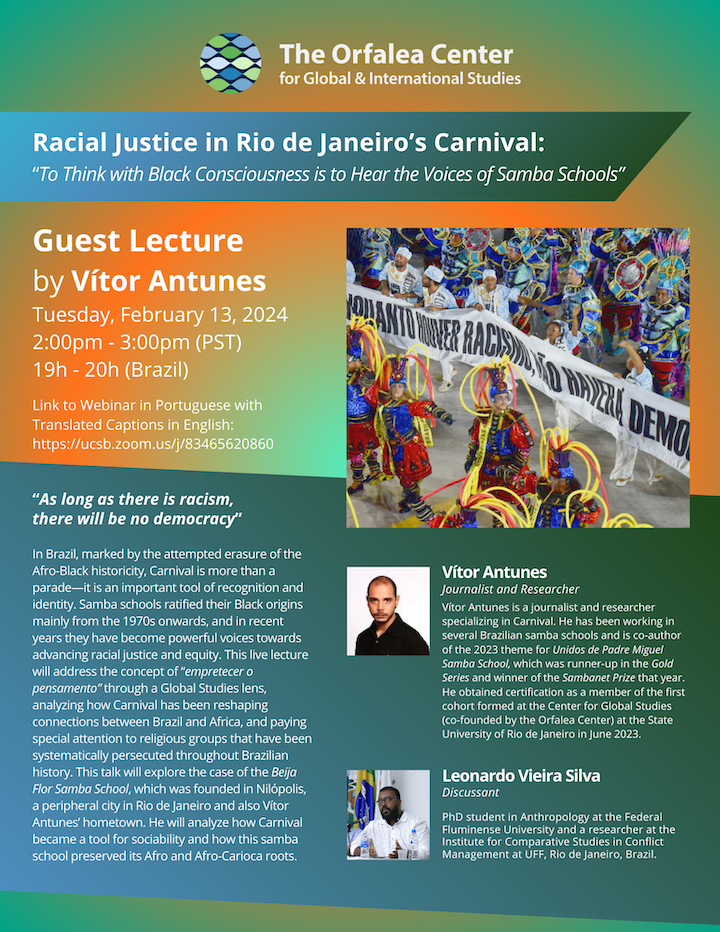
In Brazil, marked by the attempted erasure of the Afro-Black historicity, Carnival is more than a parade--it is an important tool of recognition and identity. Samba schools ratified their Black origins mainly from the 1970s onwards, and in recent years, they have become powerful voices for advancing racial justice and equity. This live lecture will address the concept of empretecer o pensamento through a Global Studies lens, analyzing how Carnival has been reshaping connections between Brazil and Africa and paying special attention to religious groups that have been systematically persecuted throughout Brazilian history. This talk will explore the case of the Beija Flor Samba School, which was founded in Nilópolis, a peripheral city in Rio de Janeiro and also Vítor Antunes' hometown. He will analyze how Carnival became a tool for sociability and how this samba school preserved its Afro and Afro-Carioca roots.